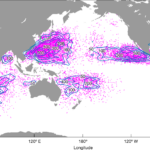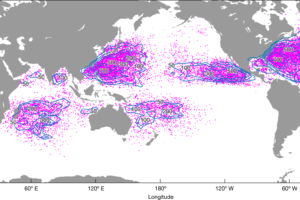Project in Montreal’s east end can proceed, as long as it follows measures aimed at controlling noise
Quebec’s Environment Ministry is allowing a controversial container hub in Montreal’s Mercier–Hochelaga-Maisonneuve neighbourhood to go ahead with the first phase of its project, but the company behind it will have to operate under a number of conditions.
In April, the ministry handed Ray-Mont Logistics, the company behind the project, a notice of non-compliance and ordered work on the project to stop. This came after an inspection that found it had begun the first phase of work before obtaining ministerial authorization.
In a news release Friday, the Environment Ministry said authorized activities at the sprawling Notre-Dame Street East site can now include trucking, handling and storing of containers, but they will be limited to only 18,000 square metres of the existing property — about eight per cent.
However, the resumption of activities is subject to several restrictions, the ministry said — most of which are aimed at controlling noise.
According to the conditions, Ray-Mont Logistics can only move up to 1,500 containers through the site per day and store a maximum of 5,000.
It must also limit its activities to between 7 a.m. to 7 p.m., and not 24 hours a day as the company had initially envisioned.
The ministry also said the company is committed to respecting a “sound environment monitoring program.”
In other words, measurements of the noise levels caused by truck activity will take place during the first month of operation at the transshipment hub, and then once every three months for at least one year.
“These measurements will make it possible to verify compliance with the established noise standards and, if required, to take the necessary corrective measures in the event of violations.”
Ray-Mont Logistics acquired the land on which it plans to build its container hub in 2016 for $20 million. It plans to turn 22,300 square metres of unused land into a transportation hub where goods will be sent via rail and road to the nearby Port of Montreal.
Residents and environmental groups have staged several protests against the project, raising concerns ranging from its proximity to residential areas, the threat to one of the only remaining green spaces in the area, the increase in noise and air pollution and overall disruption to their quality of life.
‘Certainly a disappointment’
Hochelaga-Maisonneuve resident Cassandre Charbonneau-Jobin is a member of the citizens’ group Mobilisation 6600 Parc-Nature MHM, which has been advocating against the project.
“It’s not a surprise, but it’s certainly a disappointment,” she said in reaction to the news.
“The disappointment is that the government favours private profit over the well-being and the health of the Montreal population, especially in the east of Montreal.”
She said restrictions like the one limiting operations to eight per cent of the company’s property doesn’t reassure her.

“[The company] still owns 92 per cent of that property and if [it] decides to rehabilitate the soil, which means putting concrete all over the place, then you can ask for a second authorization to operate on that other part,” she said.
“So it’s just a first step towards growing and growing and growing and becoming a monster.”
The Conseil régional de l’environnement de Montréal (CRE-Montréal), another environmental group, called the ministry’s decision “hasty,” saying there is still a lack of information on the environmental and health impacts of the project.
“CRE-Montréal regrets the absence of an environmental assessment for this first phase of the project, even though the request was widely shared by the public,” a statement from the group reads.
While it said it recognizes that the restrictions imposed are a step forward, the group said there are still several unknowns the could impact “the quality of living environments,” especially during subsequent phases of the project.
The MNA for Hochelaga-Maisonneuve, Alexandre Leduc, also denounced the decision.
He said the Coalition Avenir Québec government could have used its discretionary power to launch an environmental impact study but instead has “once again let the eastern part of Montreal down.”
Last September, Leduc called for an impact study be conducted prior to the project’s completion.
Charbonneau-Jobin said her group will continue to monitor the company’s activities to make sure it adheres to the government’s conditions.
Source: CBC News











Add Comment